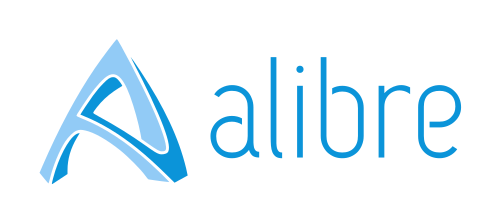NateLiquidGravity
Alibre Super User
This will Analyze the Sketch passed to it.
The Verbose setting is optional. Setting that to True that will print the results automatically.
The Heal setting is optional. Setting that to True and also setting HealingTolerance will attempt to heal a sketch.
The function will return either 0 (False indicating no problems to report) or it will return the integer quantities for each type of problem in a list in the order [DegenerateFigures, DisjointEnds, Intersections, OpenLoops, OverLaps]
Here is an example usage.
As always comments are appreciated.
The Verbose setting is optional. Setting that to True that will print the results automatically.
The Heal setting is optional. Setting that to True and also setting HealingTolerance will attempt to heal a sketch.
The function will return either 0 (False indicating no problems to report) or it will return the integer quantities for each type of problem in a list in the order [DegenerateFigures, DisjointEnds, Intersections, OpenLoops, OverLaps]
Code:
def AnalyzeSketch(ThisSketch, Verbose = 0, Heal = 0, HealingTolerance = 0):
# V2
# This will Analyze the Sketch passed to it.
# The Verbose setting is optional. Setting that to True that will print the results automatically.
# The Heal setting is optional. Setting that to True and also setting HealingTolerance will attempt to heal a sketch.
# It will return either 0 (False indicating no problems to report)
# or it will return the integer quantities for each type of problem in a list
# in the order [DegenerateFigures, DisjointEnds, Intersections, OpenLoops, OverLaps]
try:
if not ThisSketch.Figures:
print "No Figures found in sketch!"
return 1
else:
#myfigures = ThisSketch.Figures
#objSketch = myfigures[0].FigureObject().Sketch
objSketch = ThisSketch._Sketch
try:
objSketch.BeginChange()
except:
print "Unexpected error:", sys.exc_info()[0]
pass
results = objSketch.Analyze(1,1,1,1,1,Heal,HealingTolerance)
try:
objSketch.EndChange()
except:
print "Unexpected error:", sys.exc_info()[0]
pass
if results.DegenerateFigures.Count or results.DisjointEnds.Count or results.Intersections.Count or results.OpenLoops.Count or results.OverLaps.Count:
if Verbose:
print('\nAnalyzing the sketch named "' + str(ThisSketch.Name) + '"')
if results.DegenerateFigures.Count > 0:
print('Found ' +str(results.DegenerateFigures.Count) + ' DegenerateFigure(s)')
if results.DisjointEnds.Count > 0:
print('Found ' +str(results.DisjointEnds.Count) + ' DisjointEnd(s)')
if results.Intersections.Count > 0:
print('Found ' +str(results.Intersections.Count) + ' Intersection(s)')
if results.OpenLoops.Count > 0:
print('Found ' +str(results.OpenLoops.Count) + ' OpenLoop(s)')
if results.OverLaps.Count > 0:
print('Found ' +str(results.OverLaps.Count) + ' OverLap(s)')
print('')
return [int(results.DegenerateFigures.Count), int(results.DisjointEnds.Count), int(results.Intersections.Count), int(results.OpenLoops.Count), int(results.OverLaps.Count)]
else:
return 0
except:
return 0
Code:
# example code
prt = CurrentPart()
mysketch = prt.GetSketch('Sketch<1>')
results = AnalyzeSketch(mysketch, True, True, 0.0001) # Verbose and heal settings are optional. Here I set them to True.
if results:
print('Oh No! We found something wrong when analyzing the sketch!')
# do something
else:
print('The sketch looks good!')
# do somethingAs always comments are appreciated.
Last edited:
